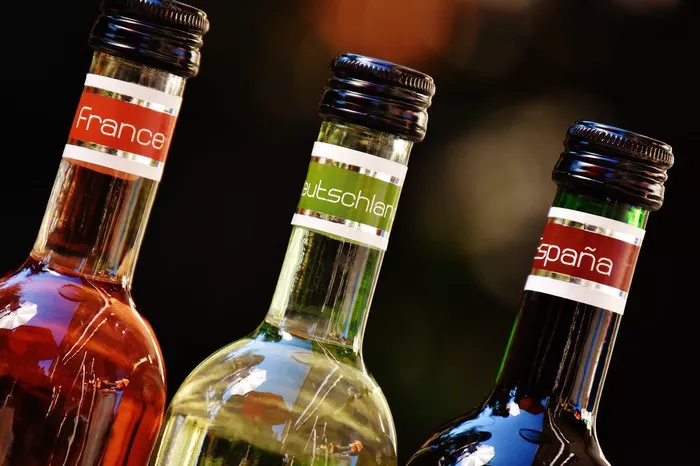The question “What is the alcohol content of Carlsberg beer?” often arises among beer enthusiasts and consumers alike. Carlsberg, one of the world’s leading brewery groups, has a rich history dating back to its inception in 1847. Renowned for its quality brews and commitment to craftsmanship, Carlsberg has garnered a loyal following globally. However, understanding the alcohol content of their flagship beer is crucial for consumers who seek to make informed choices. In this article, we delve into the intricacies of Carlsberg beer, exploring its alcohol content, brewing process, and the factors that contribute to its unique flavor profile.
The Origins of Carlsberg Beer: A Legacy of Brewing Excellence
To comprehend the alcohol content of Carlsberg beer, it’s imperative to trace its origins. Founded by J.C. Jacobsen in Copenhagen, Denmark, Carlsberg Brewery quickly gained recognition for its commitment to quality and innovation. Over the decades, Carlsberg has remained steadfast in its pursuit of brewing excellence, combining traditional brewing methods with modern techniques to produce a diverse range of beers.
Unraveling the Mystery: What is the Alcohol Content of Carlsberg Beer?
Carlsberg offers a variety of beer styles, each with its own unique characteristics and alcohol content. However, when referring to the classic Carlsberg lager, commonly known as Carlsberg Pilsner, the alcohol by volume (ABV) typically ranges between 4.8% to 5%. This moderate alcohol content makes it a versatile choice for various occasions, whether enjoying a casual drink with friends or pairing it with a hearty meal.
The Brewing Process: Crafting Perfection with Precision
Carlsberg beer is brewed using a meticulous process that emphasizes quality at every stage. The journey begins with the selection of premium ingredients, including barley, hops, water, and yeast, sourced from trusted suppliers worldwide. These ingredients undergo rigorous quality control measures to ensure consistency and purity, laying the foundation for an exceptional brew.
See Also: Can I Sell Beer Without a Liquor License?
Mastery of Ingredients: Elevating the Brewing Experience
Barley serves as the primary grain in Carlsberg beer, imparting a rich, malty flavor to the brew. Meanwhile, hops add a delicate balance of bitterness and aroma, enhancing the overall drinking experience. The choice of yeast strain is equally crucial, contributing to fermentation and influencing the beer’s final flavor profile. Through precise selection and blending of ingredients, Carlsberg achieves a harmonious balance of flavors that captivate the palate.
The Art of Fermentation: Transforming Ingredients into Liquid Gold
Fermentation plays a pivotal role in the brewing process, where sugars derived from malted barley are converted into alcohol and carbon dioxide by yeast. Carlsberg employs specialized fermentation vessels and controlled conditions to optimize this transformative process, allowing the beer to develop its characteristic depth and complexity. The duration of fermentation is closely monitored to ensure the desired alcohol content is achieved without compromising flavor integrity.
Quality Control: Upholding Standards of Excellence
At Carlsberg, quality control is paramount throughout the brewing journey. From raw material inspection to final product testing, rigorous protocols are in place to maintain consistency and uphold the brand’s reputation for excellence. Advanced analytical techniques, including chromatography and spectrophotometry, are utilized to assess key parameters such as alcohol content, bitterness units, and microbiological stability. This commitment to quality assurance ensures that every sip of Carlsberg beer meets the highest standards of taste and purity.
Sustainable Brewing: Nurturing the Environment for Future Generations
Beyond crafting exceptional beer, Carlsberg is dedicated to sustainability and environmental stewardship. Through initiatives such as water conservation, renewable energy utilization, and carbon footprint reduction, Carlsberg strives to minimize its ecological impact and preserve natural resources for future generations. By embracing sustainable practices, Carlsberg not only fulfills its corporate responsibility but also contributes to a more sustainable future for the brewing industry as a whole.
Innovation and Adaptation: Embracing Change in a Dynamic Landscape
In an ever-evolving market, Carlsberg remains at the forefront of innovation, continuously exploring new techniques and flavors to delight consumers. Whether experimenting with limited-edition releases or leveraging cutting-edge brewing technology, Carlsberg demonstrates a commitment to pushing the boundaries of traditional brewing. By staying agile and responsive to consumer preferences, Carlsberg ensures its relevance in an increasingly competitive landscape.
Conclusion: Savoring the Essence of Carlsberg Beer
In conclusion, the alcohol content of Carlsberg beer, particularly its flagship Pilsner, typically ranges between 4.8% to 5% ABV. However, behind this seemingly simple statistic lies a rich tapestry of craftsmanship, innovation, and dedication to quality. From the careful selection of ingredients to the precise execution of brewing techniques, Carlsberg epitomizes the artistry of beer-making. So, the next time you raise a glass of Carlsberg, savor not just the flavor, but the centuries-old tradition and passion that went into crafting each sip of liquid gold. Cheers to the timeless allure of Carlsberg beer!


